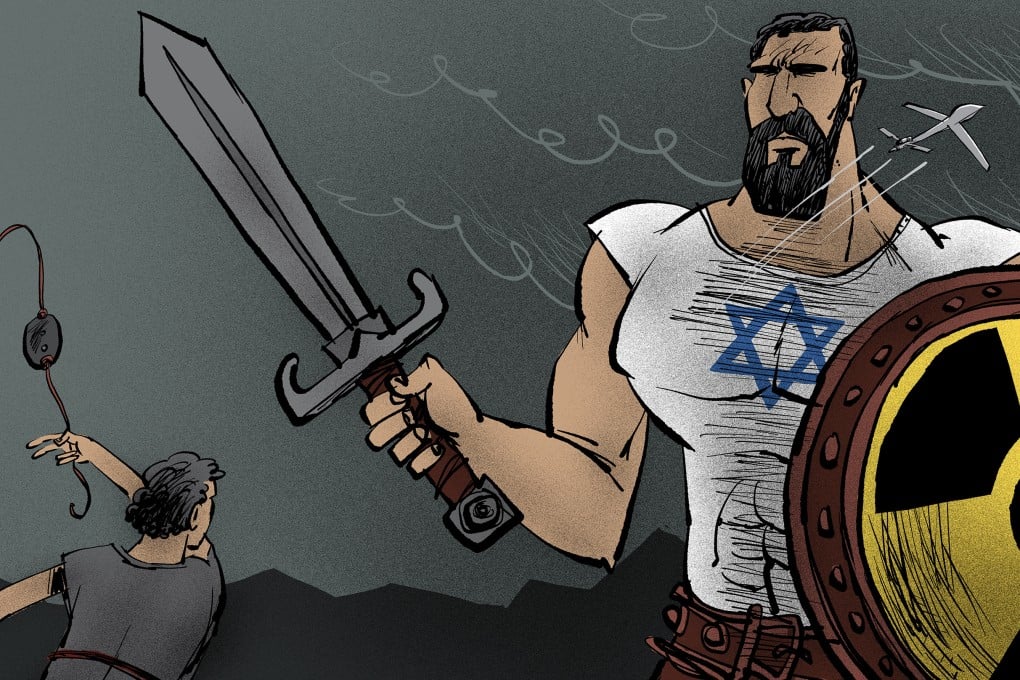Advertisement
Opinion | How Iran’s attack will force Israel to rethink its security
- Tehran’s aerial strike and Hamas’ October 7 surprise attack are reminders that Tel Aviv’s deterrence capabilities are not infallible
- Major powers must pursue diplomacy to ensure the region does not descend into greater turmoil and bloodshed
Reading Time:3 minutes
Why you can trust SCMP
1

The April 13 Iranian attack on Israel with more than 300 explosive-laden drones and missiles has definitively altered the West Asian security framework. Certain long-held axioms have been broken or rendered obsolete, spanning the entire spectrum of warfare – from strategic nuclear weapons and conventional capabilities, such as air defence systems, to low-intensity conflict and grey zone warfare.
While there is both anxiety and uncertainty about how Israel’s military is likely to respond to the audacious, albeit carefully calibrated, attack by Iran, some red lines will have to be revisited and redrawn in West Asia.
The first is the kind of deterrence profile and image that Israel has sought to project in the region. The Israeli nuclear programme is shrouded in secrecy but probably began in the 1950s when it had the tacit approval of the United States, Britain and France – three Western nuclear-armed powers. Nuclear non-proliferation was ostensibly the policy goal of some major powers at the time but Israel was determined to acquire nuclear weapons covertly – and it did.
Some experts say Israel became a de facto nuclear weapons power in September 1979 when it conducted a secret nuclear test but this was neither confirmed nor denied. Since then, Israel has projected an image of infallible deterrence derived from its opaque weapons of mass destruction (WMD) status and its robust conventional military capability.
The Israeli Defence Forces (IDF) have combined hi-tech equipment, intelligence-gathering, surveillance and a combat efficiency reputation aimed at deterring regional adversaries. The apocalyptic Samson option – the use of nuclear weapons – was seen as the final resort to an existential threat to Israel.
However, the October 7 attack by Hamas and the strike on April 13, which Iran said it conducted as retaliation for the Israeli bombing of the Iranian consulate in Damascus, have breached the infallibility of Israeli deterrence. Israel’s adversaries found openings in the impregnable defence shield that Tel Aviv had assured its citizens would always protect them from external threats.
Advertisement
